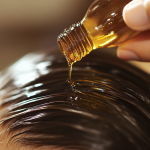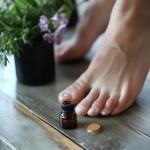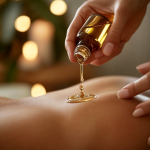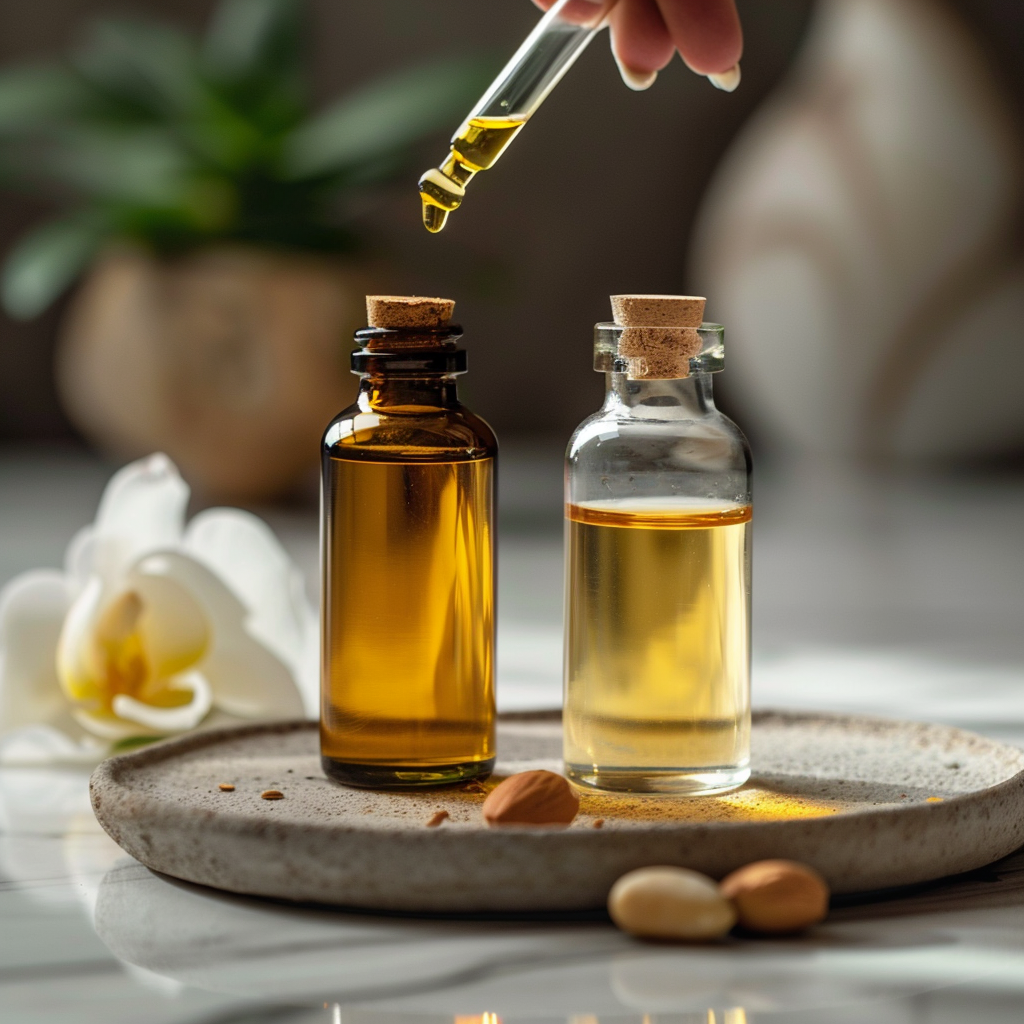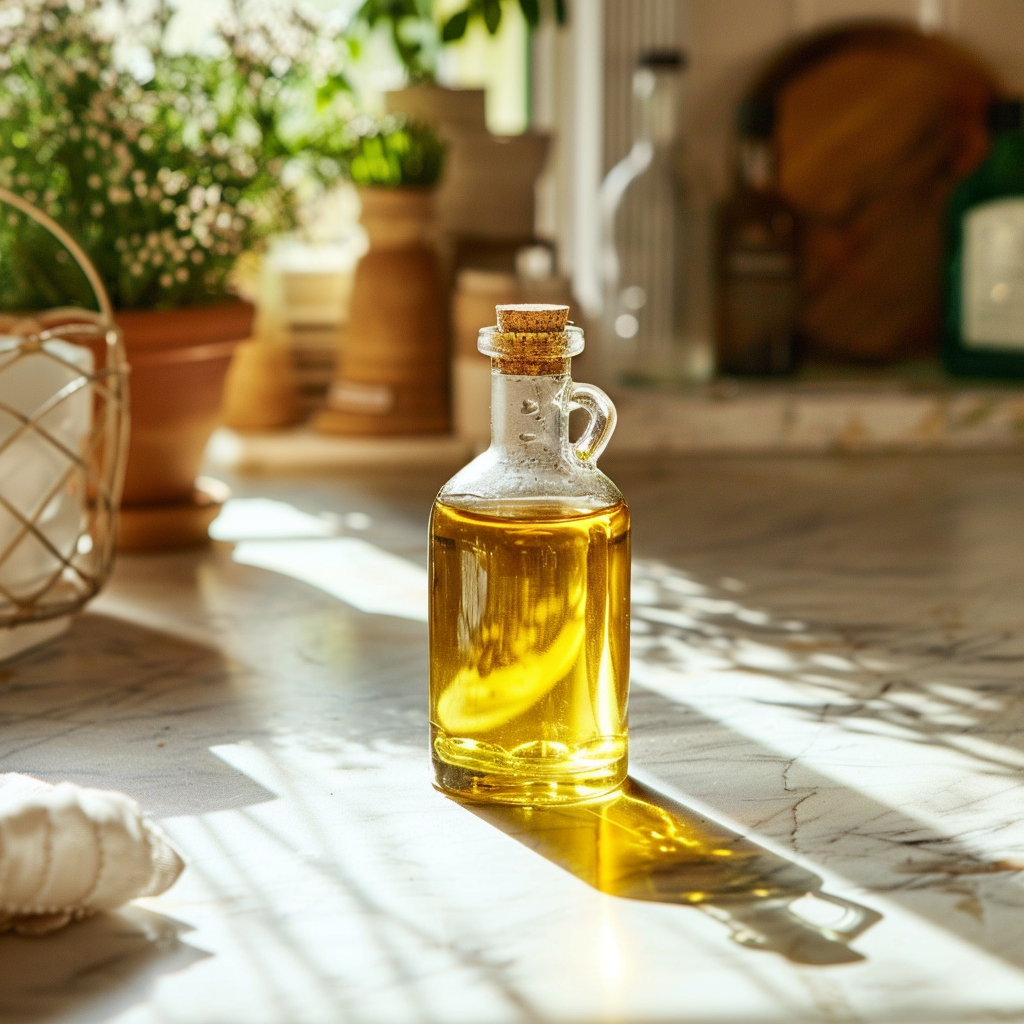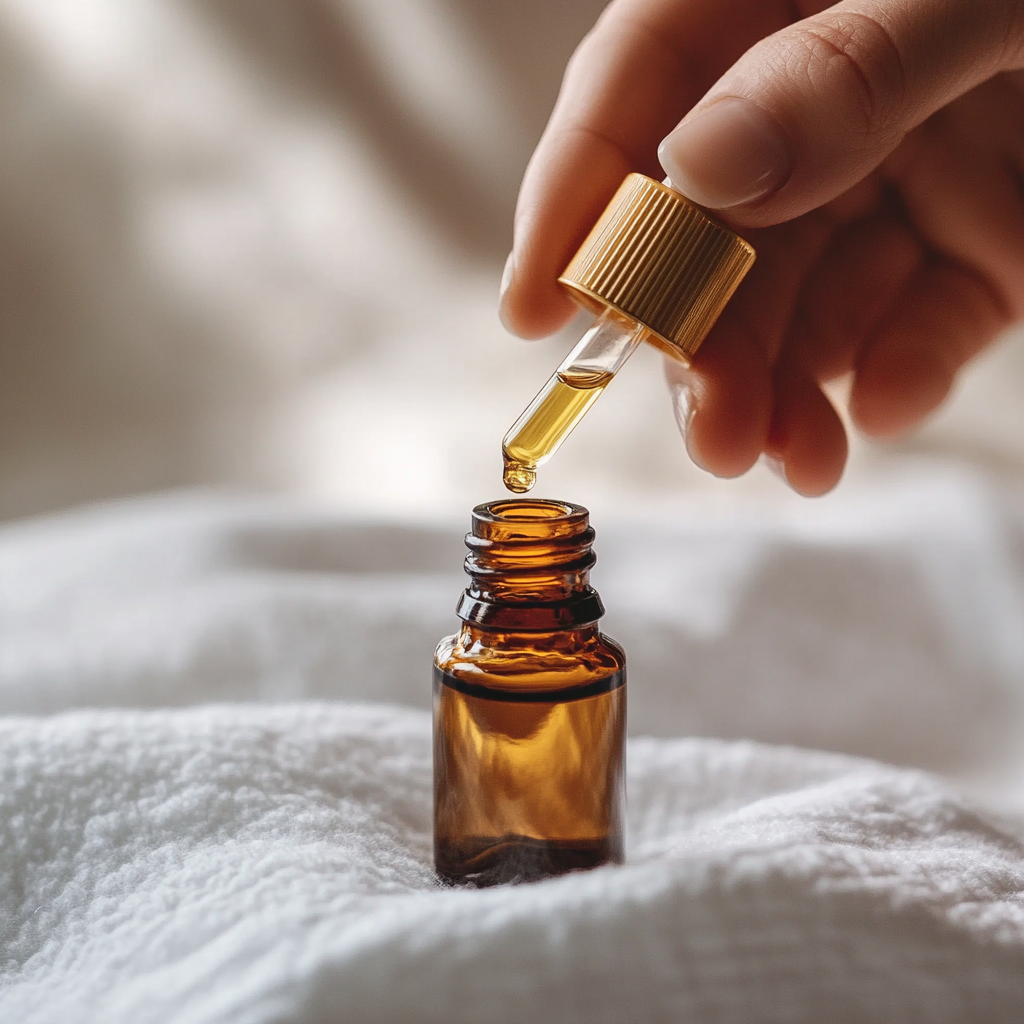Choosing the right oil for your skincare routine can be a game changer, and two of the most popular options are organic castor oil and argan oil. Both oils offer unique benefits, but understanding their differences can help you make the best choice for your skin type and concerns. This article delves into the skin care showdown of organic castor oil vs argan oil, comparing their hydration benefits, anti-aging properties, acne treatment efficacy, and more.
Organic Castor Oil vs Argan Oil: Hydration Benefits
Hydration is a critical aspect of any skincare routine, and both excel in this area. Organic castor oil is rich in ricinoleic acid, a fatty acid that acts as a humectant, drawing moisture into the skin and locking it in. This makes it particularly effective for dry skin, providing long-lasting hydration.
Argan oil, on the other hand, contains a high concentration of vitamin E and essential fatty acids such as oleic and linoleic acids. These components help to moisturize the skin without leaving a greasy residue, making argan oil suitable for a wider range of skin types. Its lightweight texture allows it to absorb quickly, delivering hydration deep into the skin layers.
While both oils are excellent for hydration, the choice between organic castor oil and argan oil depends on your skin’s specific needs. Castor oil is better for those needing intense moisture and a barrier against water loss, while argan oil provides a more balanced hydration suitable for everyday use on various skin types.
Organic Castor Oil vs Argan Oil: Anti-Aging Properties
Anti-aging benefits are another key consideration in the organic castor oil vs argan oil debate. Organic castor oil’s high ricinoleic acid content not only hydrates but also promotes collagen production, which helps to maintain skin elasticity and reduce the appearance of fine lines and wrinkles. Additionally, its antioxidant properties protect the skin from free radical damage.
Argan oil is renowned for its powerful anti-aging properties, primarily due to its high vitamin E content. Vitamin E is a potent antioxidant that helps to neutralize free radicals, preventing oxidative stress and skin aging. Argan oil also contains squalene and fatty acids that support skin regeneration and repair, further enhancing its anti-aging effects.
When comparing organic castor oil vs argan oil for anti-aging, argan oil generally comes out on top due to its higher concentration of antioxidants and skin-repairing compounds. However, castor oil can still be a valuable addition to an anti-aging routine, particularly for those with very dry skin in need of deep hydration and collagen support.
Its Efficacy with Acne Treatment
Acne treatment efficacy is a crucial factor for many when choosing between organic castor oil vs argan oil. Organic castor oil has strong antibacterial and anti-inflammatory properties, making it effective in reducing acne-causing bacteria and soothing inflamed skin. Its ability to balance oil production also helps to prevent clogged pores, a common cause of acne.
Argan oil, with its anti-inflammatory and antioxidant properties, is also beneficial for acne-prone skin. It helps to reduce redness and inflammation associated with acne, while its non-comedogenic nature ensures it does not clog pores. The linoleic acid in argan oil can help to balance sebum production, reducing the likelihood of breakouts.
Both oils offer significant benefits for acne treatment, but the choice between organic castor oil vs argan oil may come down to personal preference and skin type. Castor oil’s potent antibacterial properties make it ideal for those with frequent breakouts, while argan oil’s lighter texture and soothing properties are excellent for maintaining overall skin health and preventing future acne.
Organic Castor Oil vs Argan Oil: Skin Healing Capabilities
Skin healing capabilities are another important aspect of the organic castor oil vs argan oil comparison. Organic castor oil is known for its ability to promote wound healing and reduce inflammation. Its high ricinoleic acid content accelerates the healing process, making it effective for treating minor cuts, scrapes, and other skin irritations.
Argan oil also has impressive skin healing properties. Its high vitamin E content aids in skin repair and regeneration, while its anti-inflammatory effects help to soothe irritated skin. Argan oil is often used to treat conditions such as eczema and psoriasis, where its moisturizing and healing properties can significantly improve skin health.
In the organic castor oil vs argan oil debate for skin healing, both oils have strong merits. Castor oil is particularly effective for acute wounds and inflammatory skin conditions, while argan oil provides ongoing support for chronic skin issues and general skin health maintenance. The choice may depend on the specific type of skin healing required.
Organic Castor Oil vs Argan Oil: Reducing Scars and Blemishes
Reducing scars and blemishes is a common skincare goal, and both organic castor oil and argan oil can help. Organic castor oil penetrates deeply into the skin and promotes collagen production, reducing scars and blemishes. Its moisturizing properties keep the skin supple, aiding in scar prevention.
Argan oil, rich in antioxidants and essential fatty acids, heals and regenerates skin tissue, effectively reducing scars. Its high vitamin E content lightens dark spots and evens out skin tone, diminishing blemishes and scars over time. Regular use of argan oil results in smoother, clearer skin.
When comparing organic castor oil to argan oil for scar and blemish reduction, both are effective but work differently. Castor oil’s deep penetration and collagen-boosting properties are ideal for pronounced scars. In contrast, argan oil’s overall skin health benefits make it excellent for reducing minor blemishes and maintaining an even skin tone.
4o
Organic Castor Oil vs Argan Oil: Suitable for Sensitive Skin
Sensitive skin requires gentle and soothing care, and the choice between organic castor oil vs argan oil can be crucial. Organic castor oil, while effective, can be quite thick and may not be suitable for all sensitive skin types. Its potent antibacterial properties can sometimes cause irritation if used in excess or not diluted properly.
Argan oil, known for its gentle and lightweight nature, is generally more suitable for sensitive skin. Its anti-inflammatory properties help to calm and soothe irritated skin, making it ideal for those with conditions such as rosacea or eczema. Argan oil is less likely to cause adverse reactions, making it a safer choice for sensitive skin.
In the organic castor oil vs argan oil comparison for sensitive skin, argan oil is often the preferred choice due to its gentler formulation and broader suitability. However, those with sensitive skin can still benefit from castor oil if it is used sparingly and properly diluted with other non-irritating oils.
Pore-Clogging Potential of Both
In the organic castor oil vs. argan oil debate, pore-clogging potential matters, especially for acne-prone individuals. Organic castor oil has a comedogenic rating of 1, indicating it rarely clogs pores. It balances oil production and deep-cleanses the skin, keeping pores clear.
Conversely, argan oil, with a comedogenic rating of 0, is non-comedogenic and less likely to clog pores than castor oil. This makes it ideal for very oily or acne-prone skin. Argan oil hydrates and nourishes without risking pore congestion. Its lightweight texture ensures quick absorption, preventing residue buildup.
When choosing between organic castor oil vs. argan oil to minimize pore-clogging, argan oil is safer due to its non-comedogenic nature. However, castor oil’s low rating still makes it suitable for most skin types. It remains effective if used correctly and not over-applied.
Organic Castor Oil vs Argan Oil: Evening Skin Tone
Evening out skin tone is a common skincare goal, and both organic castor oil and argan oil can help achieve it. Organic castor oil’s deep penetration and moisturizing properties promote an even skin tone by hydrating and rejuvenating the skin. Its ability to reduce inflammation and fight bacteria also helps to minimize redness and discoloration.
Argan oil excels in evening skin tone due to its high vitamin E content and antioxidants. These components help to reduce hyperpigmentation and dark spots, resulting in a more uniform complexion. Regular use of argan oil can brighten the skin and enhance its natural radiance.
In the organic castor oil vs argan oil comparison for evening skin tone, argan oil may have a slight edge due to its superior antioxidant profile. However, castor oil remains a strong contender, especially for those dealing with inflammation-related discoloration and dehydration.
Comparing Daily Skin Care Routine
Incorporating either organic castor oil or argan oil into a daily skincare routine can yield significant benefits. Organic castor oil can be used as a nightly moisturizer, helping to lock in moisture and repair the skin overnight. It can also be used in the oil cleansing method to remove impurities and makeup, keeping the skin clean and hydrated.
Argan oil’s versatility makes it suitable for both day and night use. Its lightweight texture allows it to be worn under makeup as a daily moisturizer, providing hydration without greasiness. At night, argan oil can be used to repair and nourish the skin, promoting a healthy and glowing complexion.
When comparing for daily use, argan oil’s lighter texture and non-comedogenic properties make it more versatile for all-day application. However, castor oil’s deep hydration benefits can be particularly effective for nighttime use or specific treatments within a daily regimen.
Best for Specific Skin Types
Different skin types have unique needs, and the choice between the two can depend on these specific requirements. For dry and very dry skin, organic castor oil is highly beneficial due to its intense moisturizing properties. It provides a protective barrier that prevents moisture loss, making it ideal for those needing deep hydration.
For oily and acne-prone skin, argan oil is often the better choice. Its non-comedogenic nature ensures it hydrates without clogging pores, and its anti-inflammatory properties help to calm the skin. Argan oil’s ability to balance sebum production is particularly beneficial for managing oily skin.
In the comparison for combination skin, both oils can be used effectively. Castor oil can be applied to drier areas needing more moisture, while argan oil can be used on oilier zones to maintain balance and prevent breakouts. This tailored approach allows users to leverage the strengths of both oils based on their skin type.


